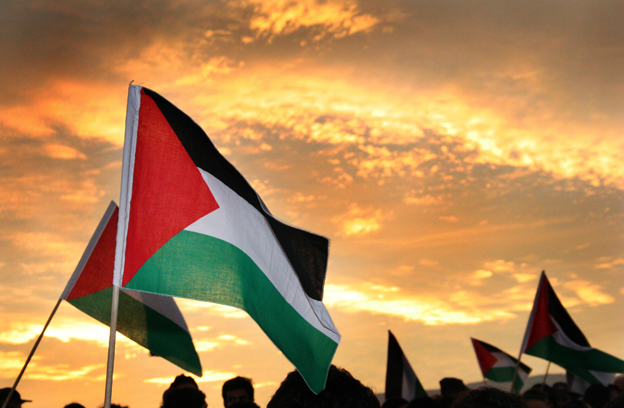Brussels – Divided from one another and controversial to public opinion. Israelis and Palestinians, a seemingly never-ending drama, the Arab-Israeli one that is an increasingly complex problem. Two peoples, two states: what should be the solution for many continues to be more rhetoric than practice, even though the international community recognizes Palestine as a state. Of the 193 member states of the United Nations (UN), as many as 143 now recognize the Palestinians’ right to exist as a geographical and political entity. Practically three-quarters of the international community sees Palestine as a state. The missing 50 include the United States, Canada, Australia, and most EU members.
November 1988, key moment for Palestine and statehood
Palestinian claims knew a turning point on November 15, 1988, when the then-President of the Palestine Liberation Organization (PLO), Yasser Arafat, proclaimed Palestine an independent and sovereign state, with Jerusalem as its capital. An announcement that did not stand alone: soon after the proclamation, Algeria recognized the new entity, paving the way for international recognition. Another 82 countries followed, and between November and December 1988, as many as 83 countries worldwide recognized Palestine as a state.
- The list of countries recognizing the Palestinian state in 1988:
Algeria, Bahrain, Indonesia, Iraq, Kuwait, Libya, Malaysia, Mauritania, Morocco, Somalia, Tunisia, Turkey, Yemen, Afghanistan, Bangladesh, Cuba, Jordan, Madagascar, Malta, Nicaragua, Pakistan, Qatar, Saudi Arabia, United Arab Emirates, Serbia, Zambia, Albania, Brunei, Djibouti, Mauritius, Sudan, Cyprus, Czech Republic, Slovakia, Egypt, Gambia, India, Nigeria, Seychelles, Sri Lanka, Namibia, Russia, Belarus, Ukraine, Vietnam, China, Burkina Faso, Comoros, Guinea, Guinea-Bissau, Cambodia, Mali, Mongolia, Senegal, Hungary, Cape Verde, North Korea, Niger, Romania, Tanzania, Bulgaria, Maldives, Ghana, Togo, Zimbabwe, Chad, Laos, Sierra Leone, Uganda, Republic of Congo, Angola, Mozambique, Sao Tome and Principe, Gabon, Oman, Poland, Democratic Republic of Congo, Botswana, Nepal, Burundi, Central African Republic, Bhutan, Western Sahara.
The post-1988: 20 more recognition in the 20th century
The international accreditation of Palestine does not stop. The first bloc of countries was joined by 20 more in the following years, and by the end of the century, there were as many as 103 states in the world to recognize a Palestinian state with all the rights of the case. Africa, Central Asia, and even Europe: support for Arafat’s cause comes from the different quadrants of the world.
- Countries recognizing the Palestinian state between 1988 and 2000:
Ruanda, Ethiopia, Iran, Benin, Kenya, Guinea Equatoriale, Vanuatu, Philippines (1989), Swaziland (1991), Kazakistan, Azerbaigian, Turkmenistan, Georgia, Bosnia and Herzegovina (1992), Tajikistan, Uzbekistan, Papua Nuova Guinea (1994), Sudafrica, Kirghizistan (1995), Malawi (1998).
The new millennium and the support of Latin America
The new millennium marks new political and diplomatic initiatives supporting the Palestinian cause and a recognition of the State of Palestine and gets a whole new momentum from Central and South America. Between 2004 and 2012, 30 more countries added to the list of those who believe it is time to recognize Palestine, which now enjoys 133 world nations explicitly on its side.
- Countries recognizing Palestine between 2000 and 2012:
Timor Est (2004), Paraguay (2005), Montenegro (2006), Costa Rica, Lebanon, Costa d’Avorio (2008), Venezuela, Repubblica Dominicana (2009), Brasile, Argentina, Bolivia, Ecuador (2010), Chile, Guyana, Peru, Suriname, Uruguay, Lesotho, Sudan, Syria, Liberia, El Salvador, Honduras, Saint Vincent and Grenadine, Belize, Dominica, Antigua and Barbuda, Grenada, Iceland (2011), Thailand (2012).
2013, Recognition by the Vatican and new pro-Palestinian nations
2013 marks a historic moment for the Palestinian cause. The Vatican, which is not part of the UN, officially takes a position on the Arab-Israeli issue and recognizes Palestine as a state. It is a move that is not only political and diplomatic but also has strong confessional overtones: the Church-state takes the Arab-Islamic side of the Middle East disputes. It is just one of the key moments of the second decade of the 2000s. Sweden breaks the hesitations of a divided and doubtful EU and becomes the first Western European country to recognize the Palestinian state.
- Recognition of the Palestinian state from 2013 to the present day
Guatemala, Haiti, Vaticano (2013), Svezia (2014), Santas Lucia (2015), Colombia (2018), Saint Kitts and Nevis (2019), Messico (2023), Bahamas, Trinidad e Tobago, Giamaica e Barbados (2024).
English version by the Translation Service of Withub






